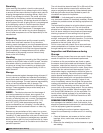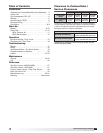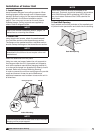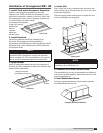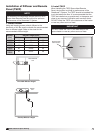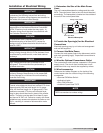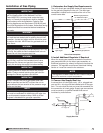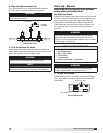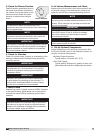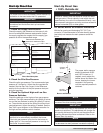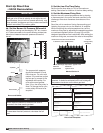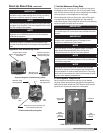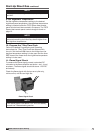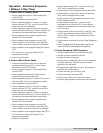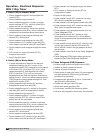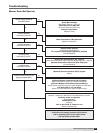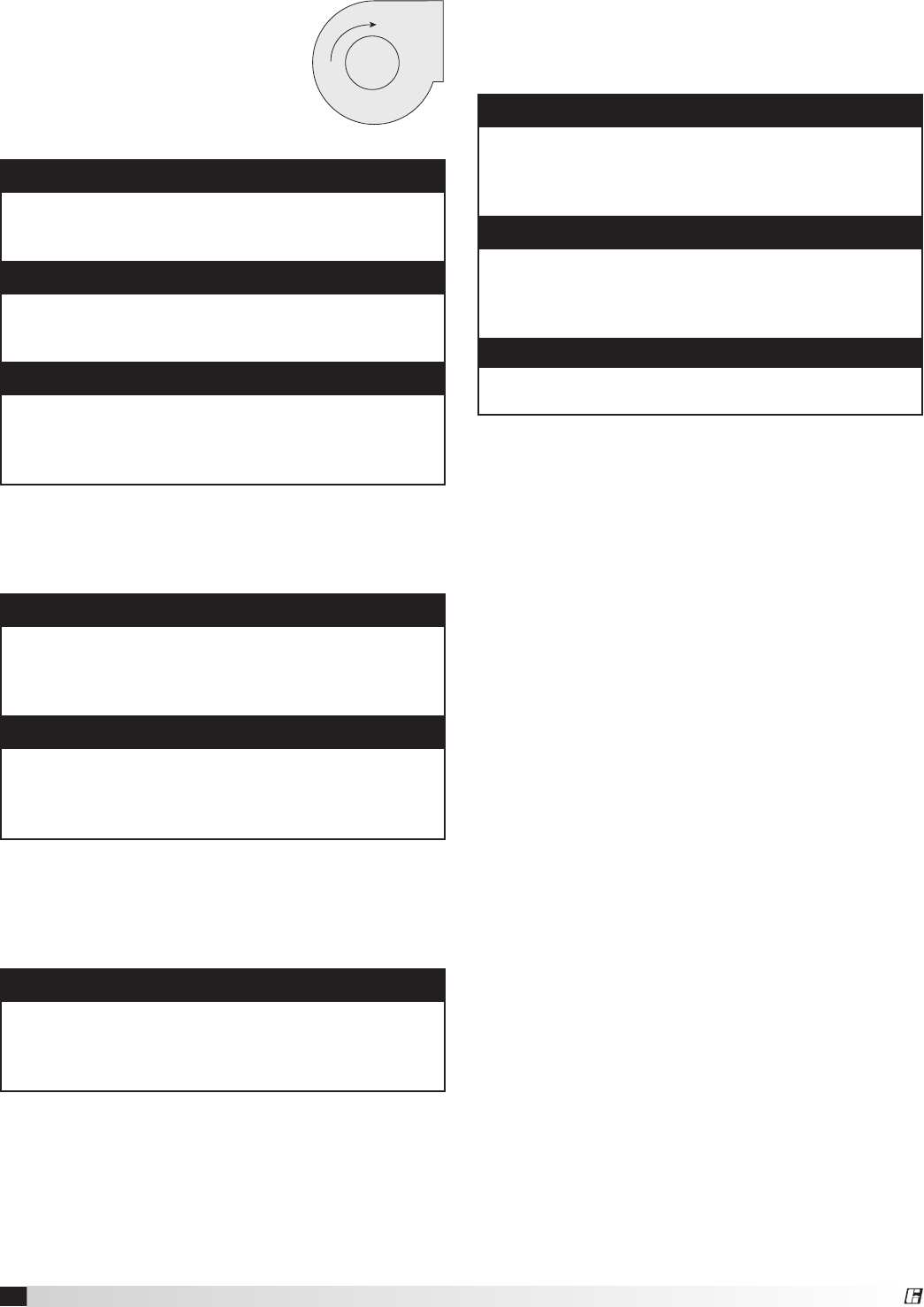
10
DGX Industrial Space Heating
2. Check the Blower Rotation
Open the blower access door and run
the blower momentarily to determine
the rotation. Arrows are placed on the
blower scroll to indicate the proper
direction or reference the example
shown.
NOTE
To reverse the rotation on three phase units,
disconnect and lock-out the power, then interchange
any two power leads.
NOTE
To reverse the rotation on single phase units,
disconnect and lock-out the power, then rewire the
motor per the manufacturer’s instructions.
IMPORTANT
If the blower is rotating in the wrong direction, the unit
will move some air, but will not perform as designed.
Be sure to perform a visual inspection to guarantee
the correct blower rotation.
6. Set-Up Optional Components
Adjust the settings on the optional components. See
the Control Center Layout in the Reference section for
location of optional components.
•BuildingFreezeProtection
Typical setting: 5 minutes; 45ºF (7ºC)
•DirtyFilterGauge
Typical setting: Settings vary greatly for each unit.
(see Reference section for adjusting information)
IMPORTANT
Excessive vibration may be experienced during
the initial start-up. Left unchecked, it can cause a
multitude of problems including structural and/or
component failure.
IMPORTANT
Generally, fan vibration and noise is transmitted
to other parts of the building by the ductwork. To
minimize this undesirable effect, the use of heavy
canvas duct connectors is recommended.
NOTE
The most accurate way to measure the air volume is
by using a pitot traverse method downstream of the
blower. Other methods can be used but should be
proven and accurate.
IMPORTANT
Changing the air volume can significantly increase
the motor’s amps. If the air volume is changed,
the motor’s amps must be checked to prevent
overloading the motor.
NOTE
To ensure accuracy, the dampers are to be open
when measuring the air volume.
IMPORTANT
Additional starters and overloads may be provided in
the make-up air control center for optional exhaust
blowers. Any additional overloads must be checked
for proper voltage, amps and RPMs.
Blower Rotation
Blower
Housing
R
o
t
a
t
i
o
n
3. Check for Vibration
Check for unusual noise, vibration or overheating of the
bearings. Reference the Troubleshooting section for
corrective actions.
4. Motor Check
Measure the motor’s voltage, amps and RPM. Compare
to the specifications. Motor amps can be reduced by
lowering the motor RPM or increasing system static
pressure.
5. Air Volume Measurement and Check
Measure the unit’s air volume (cfm) and compare it with
it’s rated air volume. If the measured air volume is off,
adjust the fan’s RPM by changing/adjusting the drive.
®



